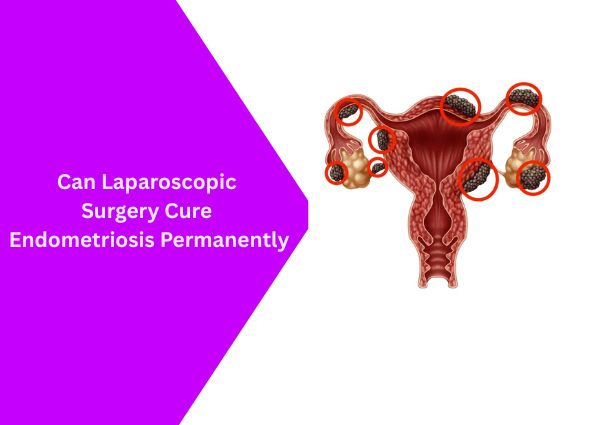
Can Laparoscopic Surgery Cure Endometriosis Permanently?
Endometriosis is a chronic condition where tissue similar to the lining of the uterus grows outside the uterine cavity. This condition can cause severe pelvic pain, painful periods, infertility, and a host of other symptoms that significantly affect quality of life. One of the most effective treatments available today is laparoscopic surgery. But can laparoscopic surgery cure endometriosis permanently? Let’s explore.
Understanding Endometriosis and Its Challenges
1. What Makes Endometriosis Difficult to Treat?
Endometriosis is not just limited to one part of the reproductive system. It can spread across the ovaries, fallopian tubes, pelvic lining, and in severe cases, to other organs. The widespread nature of the condition makes it difficult to completely remove or control with medication alone.
2. Role of Hormones in Endometriosis
Hormones, particularly estrogen, play a big role in endometriosis progression. This means that even after treatment, if hormonal activity continues, there’s always a chance of new growths developing. Hence, permanent cure remains a challenge.
3. Why Laparoscopic Surgery is Preferred
Laparoscopic surgery is a minimally invasive procedure that allows doctors to locate, remove, or destroy endometrial implants. Using small incisions and a camera, surgeons can target affected areas precisely with minimal damage to surrounding tissues, leading to faster recovery and less scarring.
Can Laparoscopic Surgery Permanently Cure Endometriosis?
1. Symptom Relief After Surgery
Many women experience significant relief from pelvic pain, heavy periods, and other symptoms after laparoscopic surgery. By removing the endometrial tissue, surgery often restores normal function and improves fertility outcomes for women trying to conceive.
2. Possibility of Recurrence
While laparoscopic surgery is effective, it does not guarantee a permanent cure. Studies show that endometriosis can recur in some women within a few years of surgery, particularly if small lesions were missed or if hormonal activity remains high. The recurrence rate varies, but ongoing management is often needed.
3. Factors That Influence Long-Term Success
The long-term effectiveness of laparoscopic surgery depends on factors such as the stage of endometriosis, the expertise of the surgeon, and whether hormonal therapies are used post-surgery. Women who combine surgery with follow-up treatments often have better results.
Additional Management After Surgery
1. Hormonal Therapy
Doctors may recommend hormonal treatments such as birth control pills, GnRH agonists, or IUDs to prevent new endometrial tissue from growing after surgery. These therapies help extend the symptom-free period.
2. Lifestyle and Diet Changes
A balanced diet, regular exercise, stress management, and maintaining a healthy weight can play supportive roles in managing endometriosis after surgery. While these won’t cure the condition, they can help reduce inflammation and improve quality of life.
3. Regular Monitoring
Follow-up checkups are crucial to ensure early detection if symptoms recur. Regular monitoring allows doctors to provide timely interventions before the condition worsens again.
Conclusion
Laparoscopic surgery is one of the most effective treatments for endometriosis and can bring long-term relief from symptoms. However, it may not always provide a permanent cure, as endometriosis has a tendency to recur in some cases. Combining surgery with medical management and healthy lifestyle changes offers the best chance for long-term control and improved quality of life.
Dr. Preeti Tandon provides the best services for diagnosing and treating endometriosis. With her expertise in laparoscopic surgery and compassionate patient care, she ensures effective, personalized treatment plans that help women regain control over their health and well-being.



